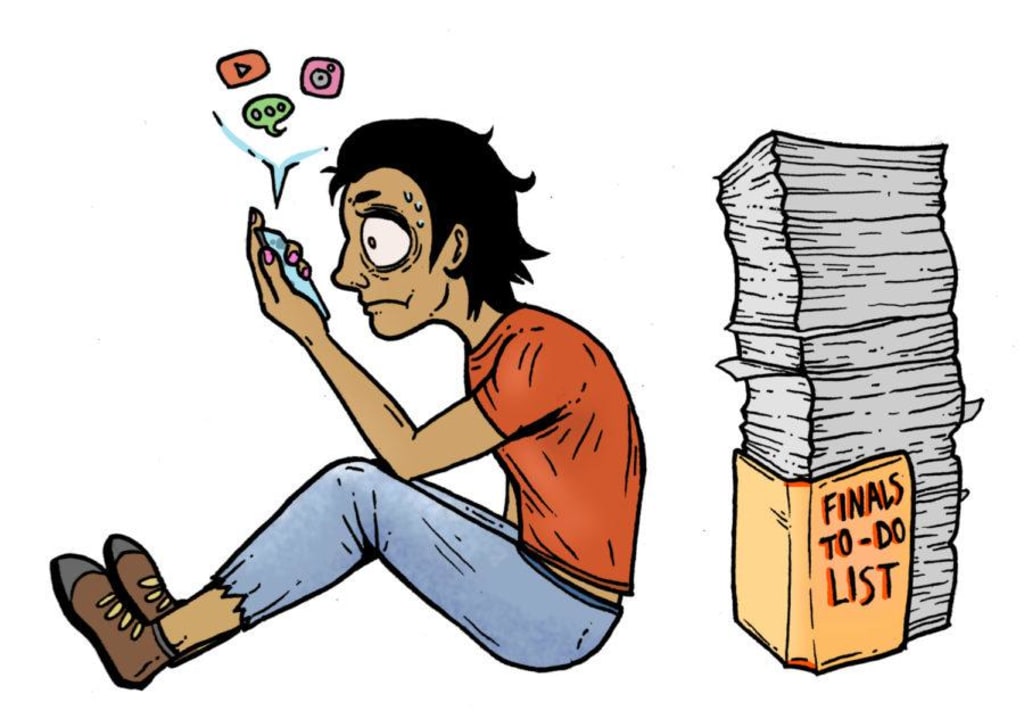How to Overcome Procrastination
You just start doing it. The science and psychology of it is explored below.

The Psychology Behind Procrastination and How to Overcome It
Procrastination is something that we all do from time to time. Whether it's putting off a difficult task, avoiding a challenging conversation, or delaying a decision, procrastination can feel like a tempting way to escape stress or anxiety in the short term. However, in the long run, procrastination can lead to missed opportunities, increased stress, and diminished productivity. In this article, we'll explore the psychology behind procrastination and provide some tips and strategies for overcoming it.
Why We Procrastinate
To understand why we procrastinate, we first need to understand what motivates our behavior. According to psychologists, our behavior is driven by two primary motivators: pleasure and pain. We seek pleasure and avoid pain. When we perceive a task as pleasurable or rewarding, we're more likely to engage in it. On the other hand, when we perceive a task as painful or stressful, we're more likely to avoid it.
Procrastination often occurs when we perceive a task as painful or stressful. We may be afraid of failure, feel overwhelmed by the scope of the task, or simply lack the motivation to get started. In these situations, our brain may try to protect us from the pain or discomfort by tempting us to engage in more pleasurable or distracting activities, such as scrolling through social media, watching TV, or even cleaning the house.
The problem with procrastination is that the temporary relief we feel from avoiding a difficult task can quickly turn into long-term consequences. As deadlines approach, stress levels rise, and the quality of our work can suffer. Moreover, the sense of guilt and shame that often accompanies procrastination can make it even harder to get started on the task, creating a vicious cycle of avoidance and self-criticism.

How to Overcome Procrastination
So, how can we overcome procrastination? Here are some tips and strategies that can help:
Identify the Root Cause: One of the first steps in overcoming procrastination is to identify what's causing it. Are you feeling overwhelmed by the task? Are you afraid of failure? Are you lacking motivation or inspiration? Once you understand the root cause of your procrastination, you can start to address it more effectively.
Break the Task into Smaller Pieces: Often, procrastination occurs because a task feels too big or overwhelming. By breaking the task into smaller, more manageable pieces, you can make it feel less daunting and more achievable. Set achievable goals for each step of the task, and reward yourself after completing each one.
Set Specific Deadlines: Deadlines can be a powerful motivator for getting things done. Set specific, achievable deadlines for each step of the task, and hold yourself accountable to them. Consider sharing your deadlines with someone else to increase accountability and motivation.

Eliminate Distractions: Distractions can be a major barrier to productivity. Identify what distracts you the most and try to eliminate or minimize those distractions. This may mean turning off your phone, logging out of social media, or finding a quiet space to work.
Practice Self-Compassion: Procrastination often comes with feelings of guilt, shame, and self-criticism. However, these negative emotions can make it even harder to get started on the task. Instead, try practicing self-compassion. Remind yourself that everyone procrastinates sometimes, and that it's okay to make mistakes or face challenges. Treat yourself with kindness and understanding, and focus on the progress you're making rather than the perfection you're striving for.
Procrastination can be a frustrating and challenging habit to overcome. However, by implementing the strategies we've discussed, you can start to break the cycle of avoidance and improve your productivity, creativity, and well-being. Remember that overcoming procrastination is a process, and it may take time and effort to see results. Be patient with yourself, stay focused on your goals, and celebrate your progress along the way. With practice and persistence, you can learn to manage your procrastination habits and unlock your full potential.
About the Creator
Aaron Volf
Discover a new perspective on life through my eyes. With a unique voice, attention to detail, and a passion for exploring new ideas, my writing will leave you inspired, informed, and eager for more.
Enjoyed the story? Support the Creator.
Subscribe for free to receive all their stories in your feed. You could also pledge your support or give them a one-off tip, letting them know you appreciate their work.






Comments
There are no comments for this story
Be the first to respond and start the conversation.